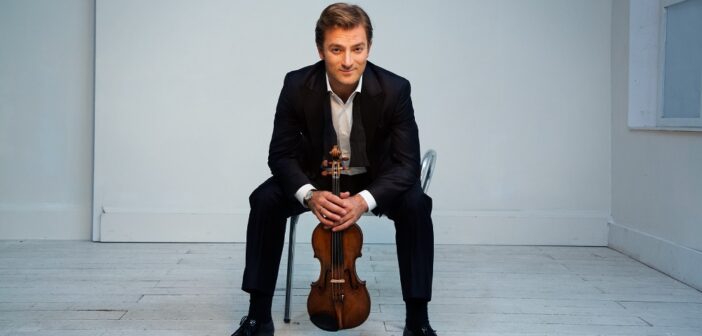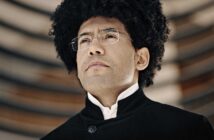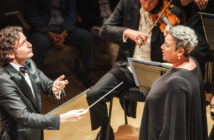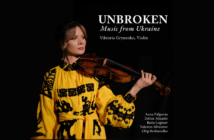French violinist Renaud Capuçon has been a favourite of mine for some years now – especially in the music of Mozart – but this was the first time I had seen and heard him in a live concert. I was not disappointed and neither was the capacity audience at George Weston Recital Hall in North York. With Gustavo Gimeno leading the TSO Capuçon gave us good old-fashioned Mozart with impeccable technique and beautiful tone.
Capuçon first played with the TSO way back in 2008 but that was fairly early in his career. He has since gone on to build an international career and with Deutsche Grammophon he has recorded extensively. If you want to see Capuçon at his considerable best visit DG’s Stage website (www.stage-plus.com) where many of his CDs and videos are readily available. You can see him play (and conduct) all the Mozart Violin Concertos and Sonatas for Violin and Piano but best of all to my ears are the six string quintets recorded at the Salzburg Mozarteum with some illustrious colleagues.
Capuçon played Mozart’s Violin Concerto in G major K. 216 with the TSO with brisk tempos and consummate elegance. My only quibble would be with his choice of cadenza for the slow movement. It was a meandering musical word salad that added nothing to what Mozart had written.
Capuçon’s Mozart in North York was part of a concert curiously titled “Spirited Overtures.” In fact, there were two spirited overtures on the program but these were minor delights compared to the Mozart concerto and Stravinsky’s ballet score Jeu de cartes (Card Game: Ballet in Three Deals).
Jeu de cartes is from Stravinsky’s middle or neo-classical period and it was one of the composer’s several collaborations with choreographer George Balanchine. It is delightful, approachable music and the wonder is that it is not programmed more often by symphony orchestras. I first heard it at Massey Hall in the 1950s with Charles Munch conducting the Boston Symphony. And I haven’t heard it since at a concert in Toronto or anywhere else. In his spoken introduction Gimeno said that it had not been played by the TSO in 54 years!
Gimeno knows the piece well having recorded it with his ‘other’ orchestra in Luxembourg. Gimeno has already played a lot of Stravinsky in Toronto and he has a great affinity for this composer’s music. Jeu de cartes is a tricky piece for any orchestra but Gimeno and his players performed it with gusto and precision.
The concert opened with the overture to Rossini’s opera The Barber of Seville. How come Rossini overtures don’t turn up on ‘serious’ concert programs anymore? They remain delightful and exciting short pieces and audiences love them. Bring back Rossini! Gimeno and the TSO showed that they loved Rossini too. Each of the wind principals had a chance to do their stuff and they did it brilliantly. Gimeno brought out all the fun and the excitement too with carefully built crescendos. And the Rossini had a thematic connection with the Stravinsky as Gimeno pointed out in his spoken remarks. Stravinsky quotes the opening of the overture in Jeu de cartes.
The concert ended with another ‘spirited overture.’ This time it was the curtain-raiser for Johann Strauss II’s Die Fledermaus. Again, Gimeno and the TSO made the most of it, waltzes and all, and with a mad dash to the finish conclusion. To be honest it was a little heavy in the brass but who cared? It was exciting and it was great fun. In fact, it was the fault of the George Weston Recital Hall. This 1,000 seat auditorium is simply not built to accommodate a big orchestra at full throttle. Nonetheless, it is obvious that music-lovers in North York hugely enjoy the fact that the TSO comes to them, saving them the hassle of trekking downtown to Roy Thomson Hall. For some years now the TSO has been presenting a series in North York, largely repeating one of the programs already given downtown. It remains an excellent idea.
www.tso.ca
www.warnerclassics.com/artist/renaud-capucon















